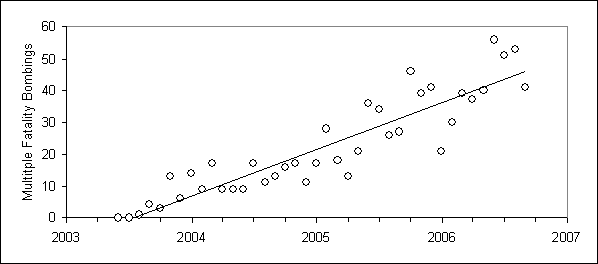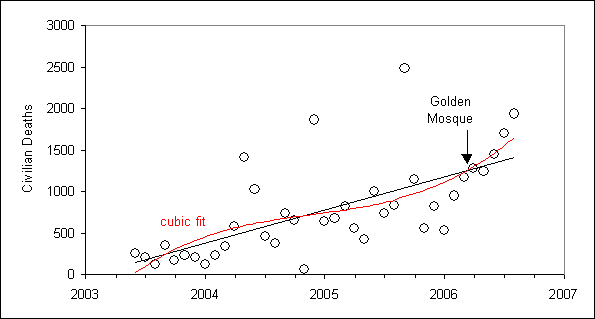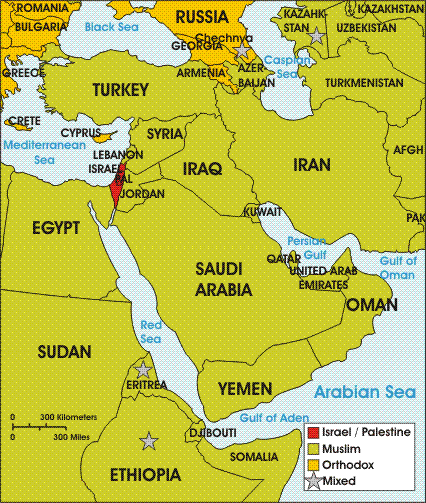> The relevant comparison isn't to other civil wars, its to the the
> Iraq-Iran war, which you have already claimed was a crisis war for
> the Iraqis. It seems to me that if the 1980's conflict can meet
> the criterion for a crisis war for Iraq then so can the current
> one.
> The death rate for Iraqis in the current conflict (about 50,000
> over 3.5 years) is greater than the 100,000 over 10 years in the
> Iran-Iraq war (ref:
>
http://www.onwar.com/aced/chrono/c19...niraq1980.htm).
> Note that although the Iraqi population is nearly twice that in
> the 1980's, the casualties in the current conflict have until
> recently been attributable to violence on the part of just the
> Sunni Arabs, who number less than half of the 1980's Iraqi
> population. If the Shia get as involved as the the Sunnis are, we
> can expect casualty rates to increase about 2-3 times their past
> levels (and indeed we have seen a steady increase in violence
> since the Samarra bombing, refecting the entrance of Shia into the
> conflict). If the current level of violence had been in effect
> over the last 3.5 years, total casualities would have been 125,000
> instead of 50,000--about 70% higher on a per capita basis than the
> Iraq-Iran war.
Originally Posted by Zarathustra





